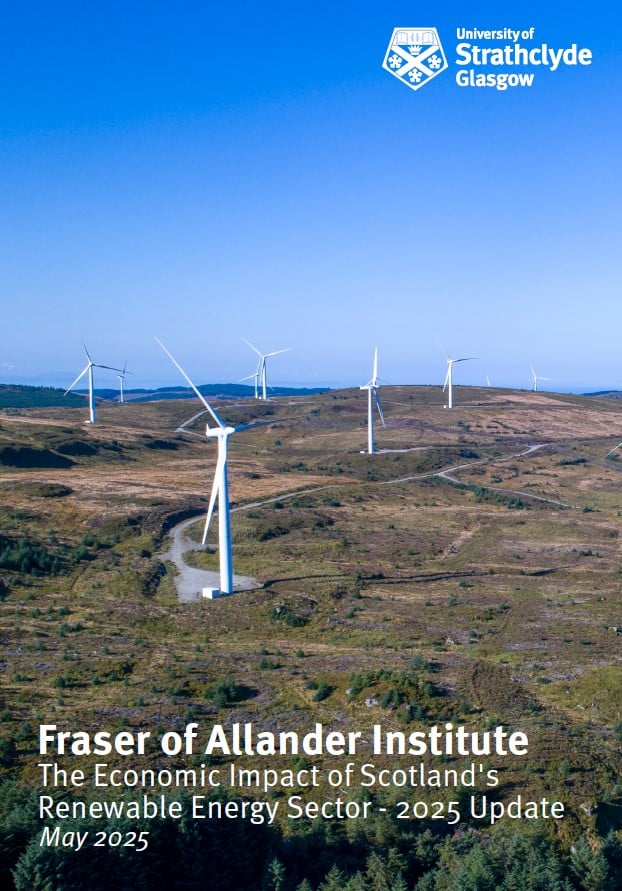This report presents estimates of the economic impact of Scotland’s renewable energy industry.
Using a model of the Scottish economy that describes inter-industry economic relationships, we were able to estimate how much output, gross value added (GVA) and employment renewable activities support in Scotland’s economy as a whole.
The renewables sector is not defined in the national accounts, so we have constructed the sector using available data published by the Office for National Statistics (ONS).
We estimate that the renewable energy industry had a turnover of £10 billion and approximately 10,900 FTE jobs.
However, the economic activity supported by renewables sector is far greater than its own turnover and employment. The renewable energy sector supports economic activity throughout its supply chains and this economic activity supports wage spending across Scotland.
Including these spill-over effects, we estimate that the renewable energy industry supports over £15.5 billion of output, over £6.6 billion of GVA and over 47,000 FTE employment across the Scottish economy in 2022.
The technologies that individually support the most FTE employment are offshore wind (19,580), onshore wind (16,865), renewable heat (4,095) and hydropower (3,560).
However, due to significant uncertainty in the underlying data and updates to the methodology, the 2022 results should be seen as a standalone snapshot rather than part of a trend. Methodological changes were made to better reflect current conditions. Additionally, the energy price crisis in 2022 had significant effects – boosting sector turnover but also increasing costs, which limited growth in GVA and employment. As a result, the 2022 results should be interpreted with care and not directly compared with data from previous years.
Authors
James is a Fellow at the Fraser of Allander Institute. He specialises in economic policy, modelling, trade and climate change. His work includes the production of economic statistics to improve our understanding of the economy, economic modelling and analysis to enhance the use of these statistics for policymaking, data visualisation to communicate results impactfully, and economic policy to understand how data can be used to drive decisions in Government.
Mairi is the Director of the Fraser of Allander Institute. Previously, she was the Deputy Chief Executive of the Scottish Fiscal Commission and the Head of National Accounts at the Scottish Government and has over a decade of experience working in different areas of statistics and analysis.



